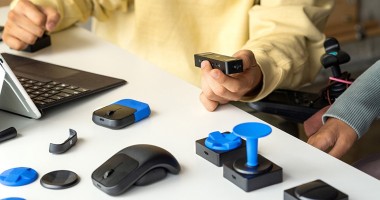"They don’t care": Inside the triumphs and failures of accessible gaming hardware angielski
Malenia, Blade of Miquella, is a menace. Even among Elden Ring’s cast of bastard-hard bosses, the Goddess of Rot distinguishes herself as an ender of lives, a relentless steel tempest that has shredded the most prepared and dextrous of adventurers. She’s also been beaten, rather soundly, by a man using only his mouth.
Or, to be more precise, a QuadStick FPS, a specialised game controller comprised of a mouth-operated joystick and several 'sip and puff' switches. It’s the favoured tool of professional streamer and Guinness World Record holder Rocky "RockyNoHands" Stoutenburgh, who in 2022 used it to become the first quadriplegic Elden Ring player to claim Malenia’s scalp. This was a win for a QuadStick as well: a showcase of how adaptive hardware and clever controller design could make games more accessible than ever, enabling players with disabilities to match and exceed the heroics of their able-bodied peers. And yet, there’s little sense – among disabled players, advocacy groups, or even controller manufacturers – that accessible hardware is entering its golden age. While major breakthroughs have been made, high prices and commercial concerns still carry the threat of willing, eager players being left behind.
...

Dodaj komentarz